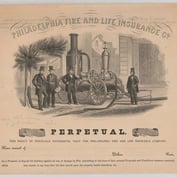
At no other time in recent memory has it been more important for life insurance agents to understand life settlement licensing and regulations in their state. The market opportunity is on the rise as baby boomers begin to retire, but agents who fail to follow the latest rules face increased scrutiny.
Three of the largest states (California, Illinois and New York) have recently changed the way that life settlement transactions can be performed. While some of the changes are simple, such as making sure that informational brochures are handed to potential clients, some are more complicated, such as in California, which has dramatically altered how agents can offer life settlements to clients.
California was one of the first to create regulations and licensing requirements for providers and brokers. However, the state recently changed the way insurance agents can participate in life settlement transactions, and confusion is common.
Today, a life insurance agent in California who recommends a settlement must be working directly with a settlement provider, secure a broker license with the state or become duly authorized with “producer authority” by the State of California Department of Insurance for that agent to earn any type of fee or consideration for the referral. The long and short of it: The days of life insurance agents calling brokers to shop policies on their behalf are over.
For life insurance agents in CALIFORNIA, here are the options:
1. Become a broker. An insurance agent can file the required paperwork with the state, pay a fee and then become a licensed life settlement broker. With this license in hand, the agent can then shop policies on his own or simply refer a client to a broker and receive a commission.
2. Secure “producer authority.” Life insurance agents licensed in the state for more than a year have another option, securing so-called producer authority. This is somewhat less tedious than the brokerage license but also requires a fee and filing with the state. Agents with producer authority can also forward policies directly to licensed brokers and providers.
3. Work directly with a provider company. Provider companies, the most heavily regulated entities in the life settlement industry, have other options, primarily because their employees are covered by the company’s license. In California, life insurance agents can work directly with providers as long as the relationship is structured in a manner consistent with controlling statutes and regulations. Some life settlement providers have created such arrangements that make it easier for agents to offer life settlements with less burdensome paperwork.








 April 30, 2012 at 08:00 PM
April 30, 2012 at 08:00 PM










